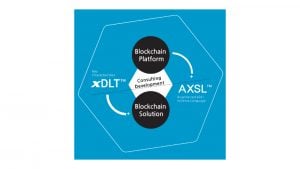
Daniel Ohn, CTO of EduHash, commented, “EduHash Main-net is a fully independent technology developed in-house by the EduHash team, and does not rely on mediocre open-source architectures. From the very start, the development team has made bold architectural changes and has been hyper-focused on performance, scalability, and flexibility. For long-term worldwide developer adoption, the team has also created the world’s first DLT schema language (AXSL), which aims to painlessly support blockchain, traditional databases and connectable APIs in a single configuration.”
KOLAS/ILAC-MRA Performance Test Certificate and Wisestone
Wisestone is a Korean service provider which, besides consulting and industry services, provides testing. It has registered with the International Laboratory Accreditation Cooperation (ILAC) organisation. KOLAS is the Korean Laboratory Accreditation Scheme, which is a member of ILAC.
ILAC describes itself as “an organisation that counts as its members laboratory accreditation bodies, regional organizations and stakeholders representing over 110 economies. The ILAC Mutual Recognition Arrangement (MRA) allows you to make use of a global network of testing and calibration laboratories and inspection bodies that have been accredited to provide accurate and reliable results.
“The MRA supports international trade by promoting international confidence and acceptance of data generated by accredited laboratories and inspection bodies. Technical barriers to trade, such as the retesting or inspection of products each time they enter a new economy would be reduced. For example, the MRA supports international trade by helping regulators to recognize and accept data that driven by regulatory or public policy frameworks in sectors such as health, environment and others.”
The accredited certificate issued for EdiHash follows international standards. It is, therefore, recognized by the 86 test institute members (covering the 72 countries that participate in the Mutual Recognition Agreement).
EduHash
The almost 1.2M TPS certified performance is, claims EduHash, currently a world-record. No other company has so far broken through the 1M TPS barrier in official institute settings. EduHash has filed eight key patents in regard to its blockchain compute architecture.
The EduHash approach appears to consist of three elements:
- xDLT (Enterprise Distributed Ledger Technology)
- AXSL (Augmented Distributed Ledger Schema Language)
- a link with DXC Technology.
Of these it is AXSL which appears to be the differentiator with its:
- parallel development environment (ATOM)
- the schema language, which is ECMA-compliant and resembles a MySQL table definition
- a UI builder (Data Connectable) where one can store enterprise data in private chains, with redundancy.
James Jeon, Vice Chairman of EduHash, said, “EduHash’s technology and its leadership capabilities have long been recognised by DXC Technology, one of the world’s largest enterprises IT company with more than $24 billion revenue.” Jeon then elaborated, “EduHash and DXC Technology have formed a teaming agreement to lead the blockchain market. This certification will accelerate the company’s expansion into a dominant market share in enterprise and governmental blockchain systems.”

Enterprise Times: what does this mean
The race for high TPS throughput in an enterprise environment is on, and there are many players. To the limits of knowledge of Enterprise Times (ET), EduHash has achieved a first in having its throughput certified.
On the other hand, there is no detail about the configuration, the testing environment, or even the tools used. While KOLAS and ILAC/MRA are indeed certifying bodies, it would help the EduHash cause if it was more explicit about how the almost 1.2M TPS throughput occurred. In addition, the EduHash web pages leave too much to the imagination.
The net ET take on Eduhash’s throughput is simple. The figures look good. The certifying authority is reputable. The supporting evidence is missing. In ET’s view it should be detailed on the EduHash site, if enterprises are to believe.
























